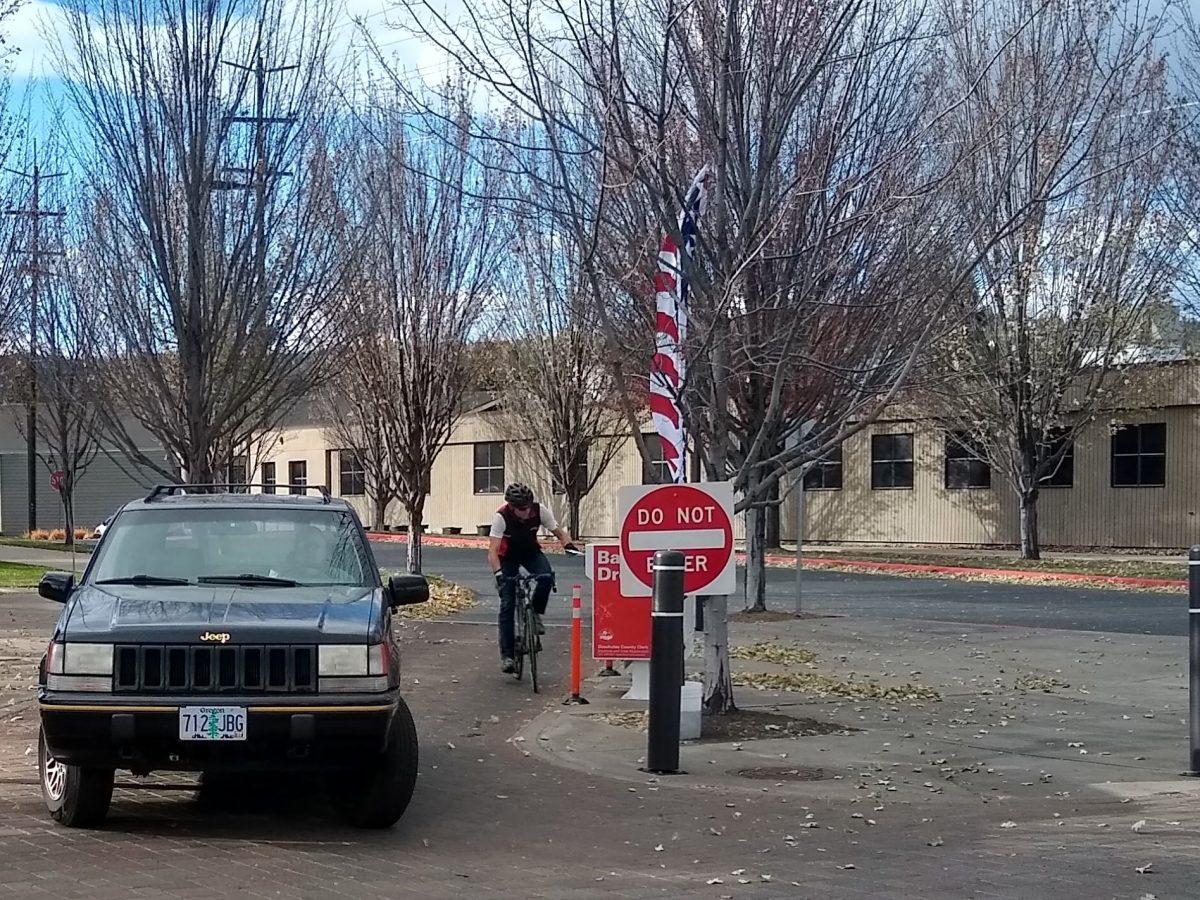Fredrik Finney-Jordet/The Broadside
The 2020 general election, though far from over, is shaping up to have been significantly impacted by the young vote. While young Americans are generally less likely to vote than their older counterparts, their turnout has steadily risen, and it is likely that this election will have one of the biggest turnouts of young voters in American history. To get an idea of how the next generation votes, and why, The Broadside interviewed local students who recently voted for the first time.
Timothy Williams, age 20, lives in Redmond and attends classes at COCC. He cast his ballot a few days ago. “This is my first time voting for president, but I was able to vote in the last midterms,” he said.
Williams said that he has become more interested in politics since the last presidential election: “I wasn’t really into politics in 2016. I guess I favored Trump, but that’s just because that was who my family was talking about, mostly,” Now, though, “I am very interested in politics and try to stay informed on local and federal politics as well as the current news cycle,”
Williams considers himself a Republican and voted for Donald Trump for President. “As far as my presidential options, the candidates could certainly be better than they are, but I am comfortable with the choice I made,” he said.
Stevie Fawcett, age 18, is a former COCC student in Bend, currently taking classes at Washington State. This is his first time voting for a President. “I am interested in politics. I pay attention to the policies being proposed in the country and problems that face the people, said Fawcett. “Recently, I have been paying more attention to what individuals can do to influence politics both locally and on a national level.”
In the past four years, Fawcett said he has seen “racism become normalized, discrimination against immigrants become commonplace and acceptable, and disgusting comments about women and racial minorities get dismissed by millions of people.” Because of these factors, and many current issues, including science in politics, affordable healthcare, African-American and LGBTQ rights, and climate change, this election is of utmost importance to Fawcett.
Fawcett said he thinks the options for President are better than in 2016, but that “there is one really awful option and one option that is a solid 6.5 out of 10.” He voted for Joe Biden.
Williams and Fawcett both have concerns about the direction in which the United States is heading. Fawcett worries that the current presidency has negatively affected progress in the country. “This administration has built an America where the wealthy sit and watch the common American struggle to survive while they continue to suck billions into their own businesses and widen the wealth gap.” The election, Fawcett said, “is our opportunity to pull the blindfold off Americans and put the country back on track to make real progress.”
While Williams thinks that “the state of the nation as a whole is still pretty strong,” he is particularly worried about political polarization. “The cultural division, the political division, is getting worse with each election. I don’t think it’s going to return to normalcy like everyone is saying. I think we can expect more of what we’ve seen in the past two elections to continue unless there is some radical shift.”
Another current COCC student, who wished to remain anonymous, chose not to vote. In an interview, he cited that he felt he could have done more research. “I felt I wasn’t informed enough to make a responsible decision,” he said.
This election’s results are currently inconclusive but will likely be available soon.








